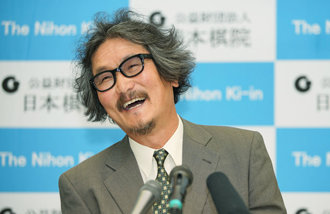[Opinion] A Food Base in Eastern Siberia
[Opinion] A Food Base in Eastern Siberia
Posted April. 17, 2008 04:48,
Lee Byeong-hwa, the 63-year-old chairman of the International Agricultural Development Institute under the Ministry of Food, Agriculture, Forestry and Fisheries, is a pioneer in establishing an overseas food base. Over the past two decades, Lee, also a farmer, has been calling for the development of the Littoral Province of Eastern Russia as our food base. He first conceived of the idea in 1989 when he was invited as an advisor to the Soviet president regarding agricultural economy of the Russian Far East. For Lee, who expected Korea to suffer a food shortage some day, the province was an optimal alternative.
85 percent of the coast of Eastern Siberia is rolling hills with abundant sunlight--a perfect combination for farmland. Moreover, there are only two million people on land that is 1.6 times larger than South Korea. Most of the farmland is leased to foreigners or foreign corporations for long periods. Since that visit, Lee has said, Lets farm the Littoral Province, at every chance he gets. He has been to the province 134 times. At first, his idea was mocked. People wondered why Korean farmers should go all the way to the Littoral Province to farm when there was more than enough rice in Korea.
However, things have changed. Corporations, and religious and cultural organizations, including Hyundai Heavy Industries, Univera, Halim, Daesunjinrihoe and the Northeast Asia Cultural Exchange Association, have gone to the province to farm 3 billion square meters of land, a sixth of South Koreas arable land and seven times the entire area of Seoul. The rice produced there is popularly known in the market as well-being rice. The rice has also been provided to North Korea as part of humanitarian assistance in 28 different occasions. Lee believes that the optimal workforce is a combination of ethnic Koreans living there and North Koreans. After all, ethnic Koreans accounted for 70 percent of the provinces population before 1937, when Stalin forced 173,000 ethnic Koreans to relocate to Central Asia. Now, the number of North Korean workers there is significant.
President Lee Myung-bak also mentioned the province as Koreas potential overseas food base. Chairman Lee said that the presidents point was accurate, explaining that the province meets every condition to become a good food base. According to him, soy and wheat produced there can more than enough fill Koreas shortfalls. The problem is the prohibitive agricultural import tariffs that reach 200 to 400 percent. He said, Korea is the only country to impose tariffs on produce from its own overseas food base in which it invested capital and manpower. This overseas food base, discovered by an agricultural pioneer, is like a ray of hope for Korea at a time of global food shortages.
Editorial Writer Heo Mun-myeong (angelhuh@donga.com)







